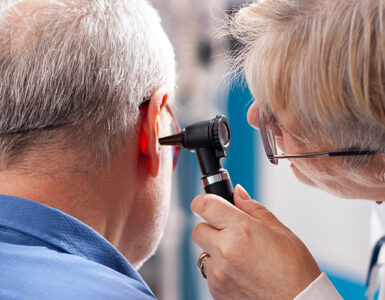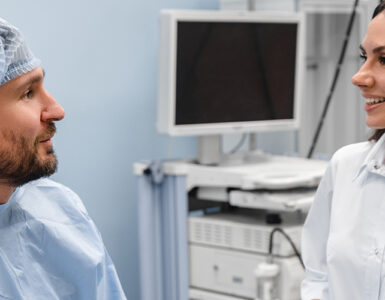HIV (Human Immunodeficiency Virus) is a virus that attacks the body’s immune system by targeting T cells that fight off infections. If left untreated, the virus can weaken your immune system over time, making it harder for the body to defend itself.
Thankfully, modern medicine has allowed for early testing and preventative medications that let patients with HIV continue leading healthy lives and prevent acquisition of HIV respectively.
5 Reasons to Get Tested For HIV
The only way to know you have HIV is to get tested. Testing for STIs (sexually transmitted infections), including HIV, is crucial for timely intervention and to prevent the transmission of STIs to others.
Here’s more about why it’s beneficial to get tested for HIV:
1. Early Detection
Testing for HIV can detect the virus in its early stages before the virus progresses or can be passed to others. When you find out that you have HIV soon after acquiring it, you’ll have the opportunity to get treatment right away and to communicate with your sexual partners about your status.
2. Access to Treatment that Slows Progression
A positive HIV test result allows you to access preventative medications and support services that can improve your quality of life and longevity.
Patients who test positive for HIV also have access to Antiretroviral therapy (ART), which are medications that suppress the virus and reduce the viral load (amount of HIV in the body). ART helps to prevent complications associated with AIDS (Acquired Immunodeficiency Syndrome), the most advanced stage of HIV infection.
What if you were recently exposed to HIV or had unprotected sex with someone who has HIV? Receiving post-exposure prophylaxis (PEP) medications within 72 hours after a possible exposure to HIV can prevent the spread of HIV. PEP is an emergency measure that a doctor can prescribe at an STI clinic, emergency room or urgent care facility.
3. Protection of Immune Function
Treatment for HIV is crucial for safeguarding immune function.
HIV attacks and destroys CD4 cells, weakening the immune system’s ability to fight off diseases that can become serious or even deadly. Early treatment helps preserve CD4 cell counts and maintain a healthy immune system.
4. Preventing Transmission to Others
If you know you have HIV, you can take measures to prevent transmitting the virus to others, such as by using condoms and practicing safe sex.
5. Peace of Mind
Instead of wondering and worrying about your HIV status, getting tested provides you with peace of mind, alleviating any anxiety and uncertainty you might have about your health.
What to Expect When You Get an HIV Test
An HIV test is a simple and confidential procedure that typically involves:
- Blood sample: The most common type of HIV test involves collecting a small blood sample, usually obtained through a finger prick or from a vein in the arm. Some tests also use oral fluid or urine samples.
- Laboratory testing: The blood, oral fluid, or urine sample is then sent to a laboratory for testing. Laboratory tests detect the presence of HIV antibodies or viral proteins (antigens) in the sample.
- Results: Depending on the type of test used, results may be available within minutes (rapid HIV tests) or a few days (standard laboratory tests).
- Counseling: Regardless of the outcome, support is provided after the test to ensure you understand your results and next steps.
HIV testing is the first step in early detection, ensuring you have access to treatment as soon as possible and preventing transmission to others.
At the Stony Brook STI Center, we offer comprehensive STI (sexually transmitted infection) testing, pre-exposure prophylaxis (PrEP) for preventing HIV infection, and post-exposure prophylaxis (PEP) after exposure to HIV. If you suspect that you have already contracted a sexually transmitted illness, our STI Center offers quick testing, diagnosis and treatment.












